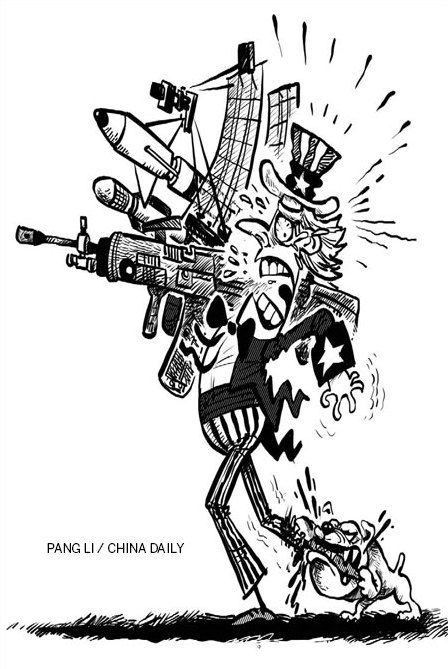US faces a dilemma on terrorism
- By Fu Xiaoqiang
 0 Comment(s)
0 Comment(s) Print
Print E-mail China Daily, April 25, 2013
E-mail China Daily, April 25, 2013

The Boston Marathon bombings that killed three people and injured more than 170, the shootout that followed on the campus of Massachusetts Institute of Technology and a massive explosion in a fertilizer plant in Texas made up a black week for the United States and highlighted domestic security issues.
Police later identified two brothers, Tamerlan Tsarnaev and Dzhokar Tsarnaev, ethnic Chechens who migrated to the US more than a decade ago, as suspects in the Boston bombings. Tamerlan was later killed in a shootout with police and Dzhokar was arrested after being cornered in a boat in the Watertown area of Boston.
The injured suspect has told interrogators that he and his brother acted alone and without the help of any foreign terrorist group, and were driven by hard-line Islamist views and anger over the US wars in Afghanistan and Iraq, US officials said Tuesday.
Since the bombings took place at a sensitive time, when the US has accelerated the withdrawal of troops from Afghanistan and is reducing the scale of the war on terrorism, it will affect US President Barack Obama's counter-terrorism strategy.
The Boston bombings show that only keeping a close watch on foreign terrorist groups and using the global anti-terrorism campaign to advance its geopolitical interests cannot solve the US' domestic security problems. To prevent attacks by foreign terrorist groups, the US has established detective and control networks that enable intelligence authorities to issue early warning against threats by monitoring the Internet, tapping phones and analyzing clues overseas.
Possible attacks on the New York subway in 2009 and Times Square in 2010 could be averted because of the rich experience the US has gathered in guarding against al-Qaida and other foreign terrorist groups. But the result of the US' attempt to eliminate domestic terrorist threats has been limited despite the large inputs.
That a pressure-cooker device was used in the Boston bombings suggests terrorists do not necessarily need a backup foreign network to launch an attack. And since al-Qaida is exhorting youths within the US to carry out low-level, "leaderless" attacks, people could learn from materials available online how to turn a pressure cooker into a bomb.





